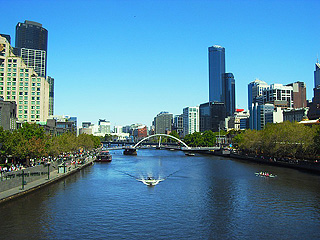Belarusian Payslip Translation
 We provide payslip translations in many languages, including Belarusian. Besides letters of appointment or employment contracts, it is a very common document used to verify your past working experience or income.
We provide payslip translations in many languages, including Belarusian. Besides letters of appointment or employment contracts, it is a very common document used to verify your past working experience or income.
Our Belarusian NAATI translators provide both Belarusian to English translation and English to Belarusian translation services for documents.
Translate My Payslip
- Can be done within two days or faster
- Express options available
- No office visit required
- Best price guarantee
- NAATI translator stamped
- Mailed to your address
- Just submit your payslips using the form on this page for a free quote
- There are no hidden charges for fast Belarusian translation by NAATI certified Belarusian translators
- Many happy repeat customers
- We provide discounts for repeat customers or large orders
- NAATI certified Belarusian translators for immigration or legal documents
- Full-time Belarusian translators experienced in translating all kinds of documents
- Personal, friendly service
Belarusian Translation Service Australia-Wide
- Sydney
- Melbourne
- Brisbane
- Perth
- Canberra
- Darwin
- Hobart
- Adelaide
- Wollongong
- Newcastle
- Cairns
- ID card translations
- Degree translations
- Diploma translations
- Passport translation
- Family register/book translations
- Employment reference translations
- Police Clearance Certificate Translation
- Change of name certificate translations
- Vaccination certificate translations
- Education certificate translations
- Employment reference translations
- Birth certificate translation
- Tertiary certificate translations
- Identity certificate translations
- Divorce certificate translations
- Baptism certificate translations
- Custody document translations
- Academic transcript translations
- Legal translation services
- Death certificate translation
- Degree certificate translations
- Marriage certificate translations
- Medical certificate/report translations
- Letters of appointment translations
- Employment contract translations
- Academic transcript translations
- Professional certificate translations
- Trade certificate translations
- Driving licence translation
- Motor cycle licence translations
- Primary school certificate translations
- Secondary certificate translations
- Vocational certificate translations
More About The Belarusian Language
Although closely related to other East Slavic languages, Belarusian phonology is distinct in a number of ways. The phoneme inventory of the modern Belarusian language consists of 45 to 54 phonemes: 6 vowels and 39 to 48 consonants, depending on how they are counted. When the nine geminate consonants are excluded as mere variations there are 39 consonants, and excluding rare consonants further depresses the count. The number 48 includes all consonant sounds, including variations and rare sounds, which may be semantically distinct in the modern Belarusian language.
Standardized Belarusian grammar in its modern form was adopted in 1959, with minor amendments in 1985. It was developed from the initial form set down by Branislaw Tarashkyevich (first printed in Vilnius, 1918). Historically, there had existed several other alternative standardized forms of Belarusian grammar.
Belarusian grammar is mostly synthetic and partly analytic. Belarusian orthography is constructed on the phonetic principle, and is mainly based on on the Belarusian folk dialects of Minsk-Vilnius region.

Melbourne is the capital and most populous city in the state of Victoria, and the second most populous city in Australia. The Melbourne City Centre is the hub of the greater metropolitan area and the Census statistical division—of which "Melbourne" is the common name. As of June 2010, the greater geographical area had an approximate population of four million. Inhabitants of Melbourne are called Melburnians or Melbournians.
The metropolis is located on the large natural bay known as Port Phillip, with the city centre positioned at the estuary of the Yarra River (at the northernmost point of the bay). The metropolitan area then extends south from the city centre, along the eastern and western shorelines of Port Phillip, and expands into the hinterland. The city centre is situated in the municipality known as the City of Melbourne, and the metropolitan area consists of a further 30 municipalities.
